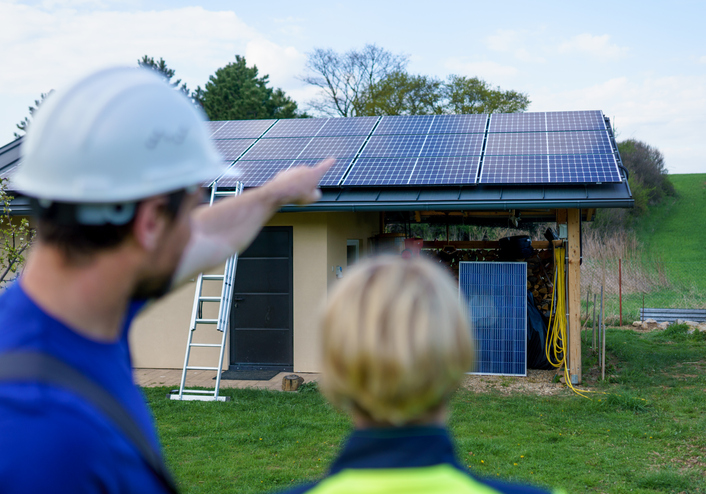
In the pursuit of a sustainable future, one of the critical areas where individuals can make a significant impact is in their homes. With rising concerns about climate change and depleting natural resources, unveiling sustainable solutions for home energy is not just a choice; it’s a responsibility. In this blog, we will explore innovative and practical ways to make your home more energy-efficient and environmentally friendly.
Solar Power
Harnessing the power of the sun is a tried and true method for sustainable home energy. Solar panels, once considered a luxury, have become more accessible and affordable in recent years. By hiring a solar company to install panels on your roof, you can generate clean and renewable energy to power your home. Many governments and local municipalities offer incentives and tax credits for installations, making the switch even more attractive.
Energy-Efficient Appliances
A significant portion of a household’s energy consumption comes from appliances. Upgrading to energy-efficient appliances can lead to substantial energy savings over time. Look for appliances with the Energy Star label, which signifies that the product meets strict energy efficiency guidelines. From refrigerators to washing machines, modern energy-efficient appliances not only reduce your carbon footprint but also contribute to lower utility bills.
Smart Home Technologies
The rise of smart home technologies has introduced innovative ways to manage and optimize energy consumption. Smart thermostats, for example, can learn your heating and cooling preferences, adjusting them automatically to save energy. Similarly, smart lighting systems allow you to control lights remotely and schedule them for energy-efficient use. Integrating these technologies into your home not only enhances convenience but also contributes to a more sustainable lifestyle.
Energy-Efficient Windows and Insulation
Windows and insulation play a crucial role in regulating indoor temperatures and minimizing the need for excessive heating or cooling. Invest in energy-efficient windows that provide proper insulation and reduce heat transfer. Additionally, evaluate and improve the insulation in your home, including the attic and walls. Proper insulation ensures that your home retains heat in the winter and stays cool in the summer, leading to lower energy consumption year-round.
Wind Power
While not as common as solar power, wind power can be a viable option for homeowners, especially those in areas with consistent wind patterns. Small-scale wind turbines can be installed on residential properties to generate electricity. Before considering this option, it’s essential to assess the local wind conditions and ensure compliance with any zoning or permit requirements. Wind power can be a valuable addition to a holistic approach to sustainable home energy.
Geothermal Heating and Cooling
Harnessing the Earth’s natural heat through geothermal systems is another sustainable solution for home energy. Geothermal heating and cooling systems use the stable temperature of the ground to regulate indoor climate control. While the initial installation cost may be higher, geothermal systems are highly energy-efficient and can provide long-term savings on heating and cooling expenses. This technology represents a reliable and eco-friendly alternative to traditional HVAC systems.
Energy Audits
Conducting a home energy audit is a practical first step in identifying areas for improvement. Professional energy auditors can assess your home’s energy efficiency, identifying potential leaks, insulation issues, and areas where energy is being wasted. Armed with this information, homeowners can prioritize energy-saving upgrades and renovations, making their homes more sustainable and cost-effective in the long run.
Micro-Grid Systems
Micro-grid systems allow homeowners to generate and store their energy, providing independence from the traditional grid. By combining solar panels, energy storage solutions (like batteries), and smart grid technologies, homeowners can create a resilient and sustainable energy system for their homes. This approach not only reduces reliance on fossil fuels but also ensures a continuous power supply, even during grid outages.
Final Thoughts
Unveiling sustainable solutions for home energy is a multifaceted journey that involves adopting a combination of technologies, mindful consumption habits, and environmentally conscious decisions. From harnessing renewable sources like wind power to speaking with a solar company about energy-efficient changes, homeowners have a range of options to make their homes more sustainable. By taking steps towards greener living, individuals contribute not only to a more sustainable future but also to the well-being of the planet and future generations.